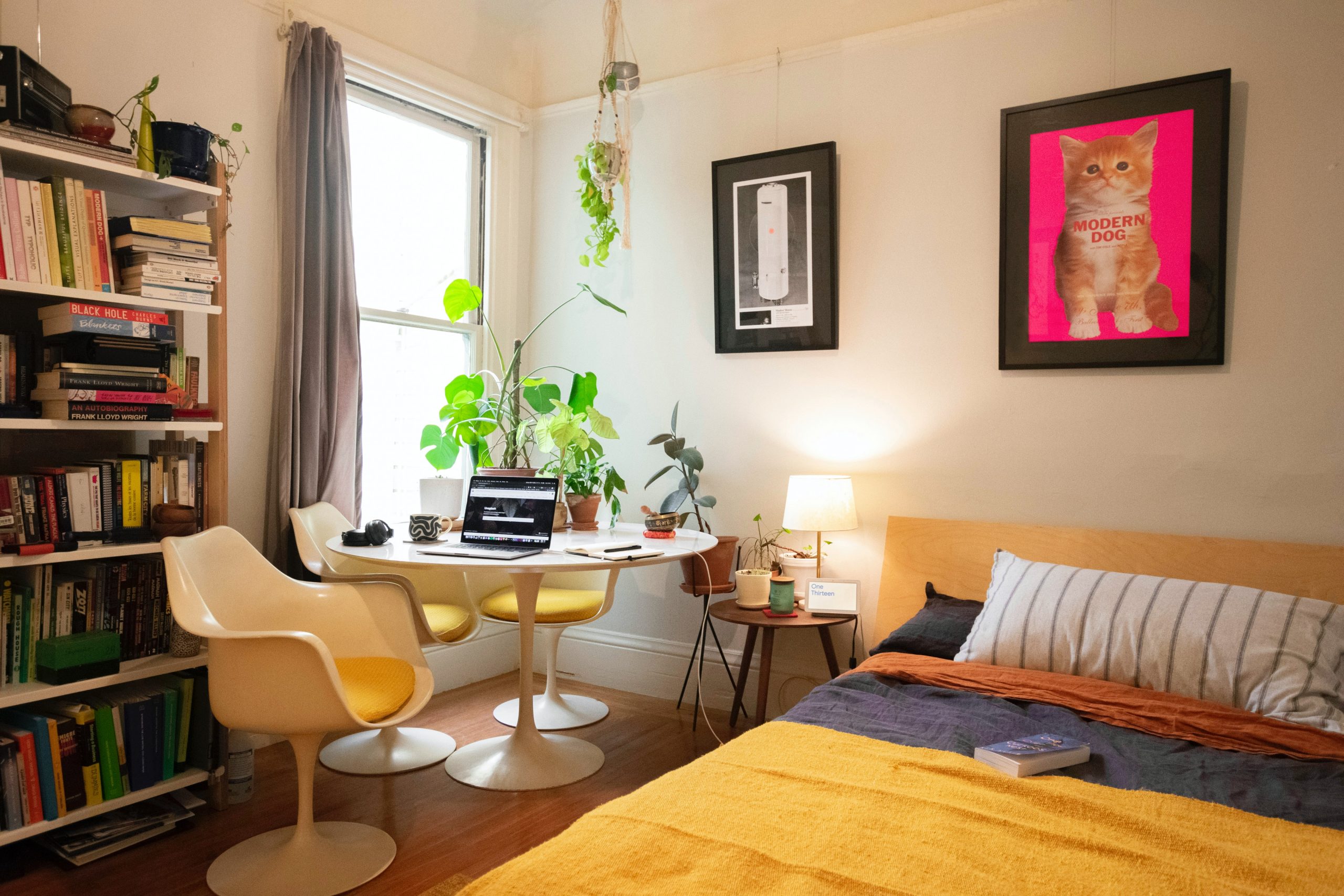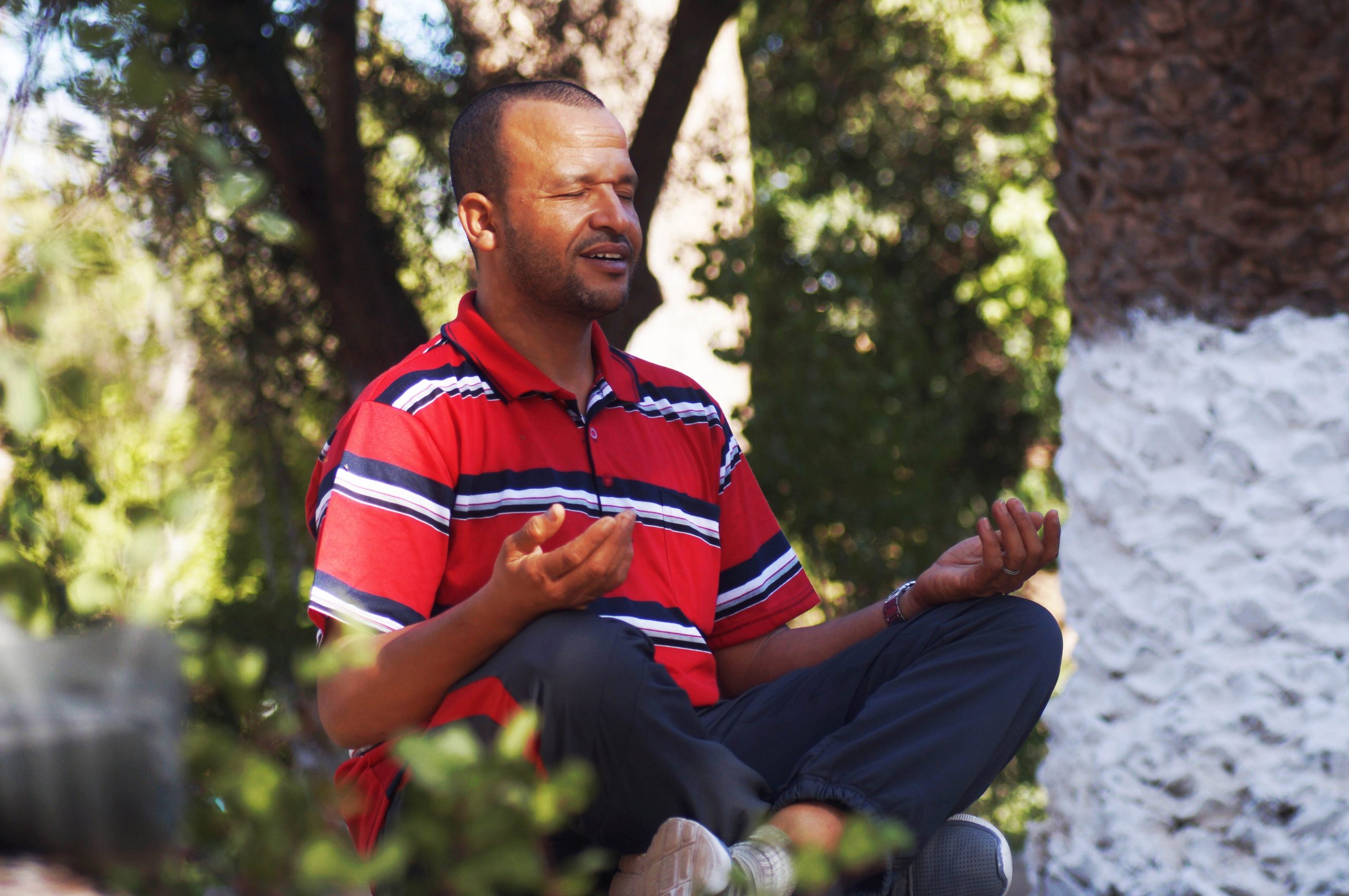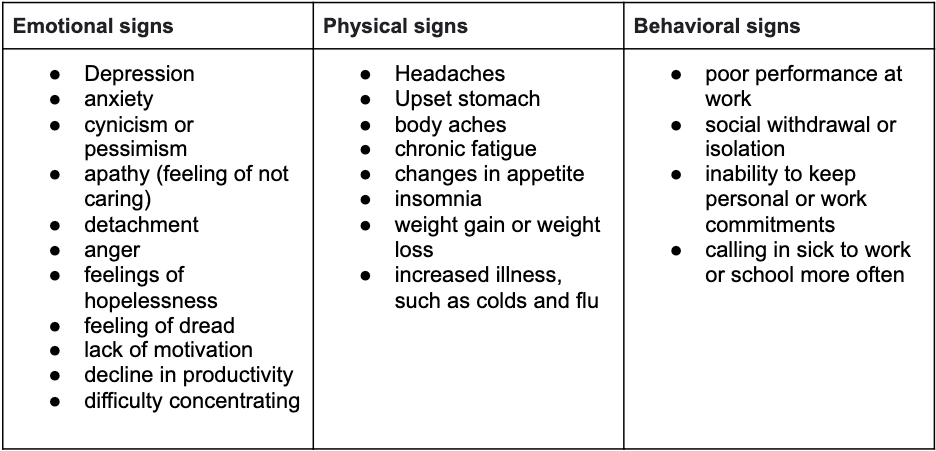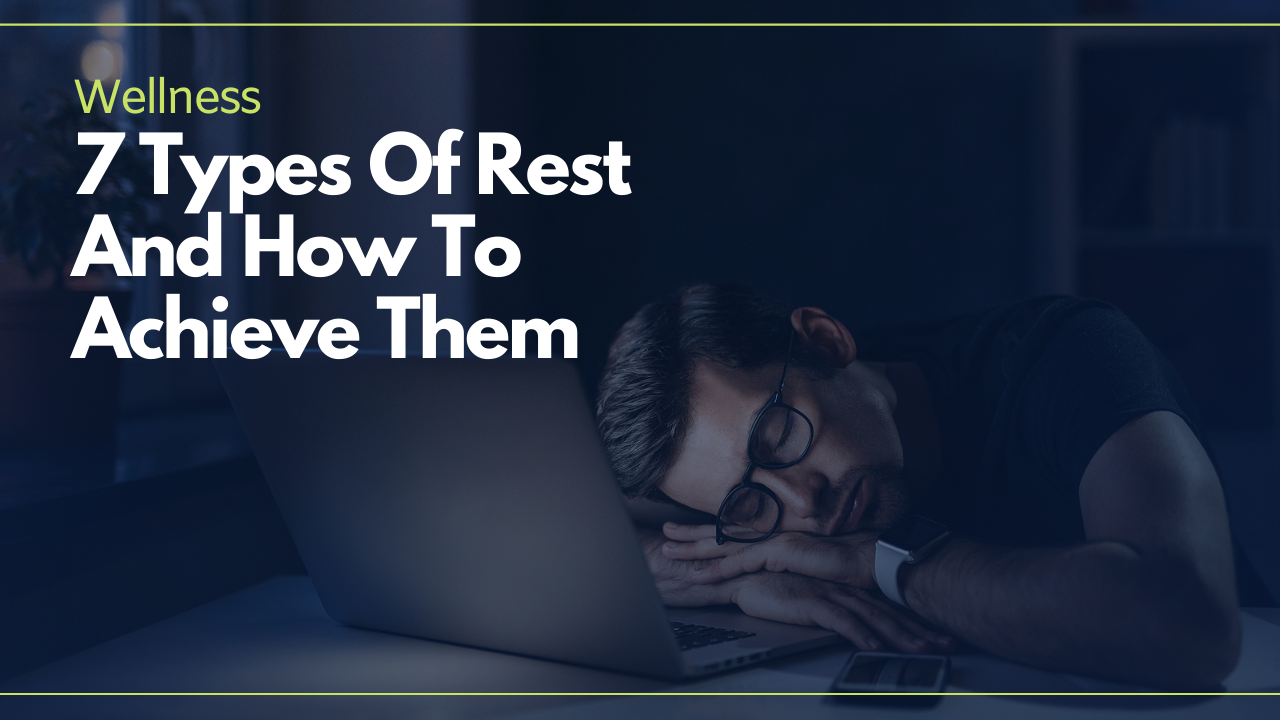- Resting and sleeping are not the same thing.
- Lack of rest can lead to exhaustion, even if you sleep the recommended 8 hours a night.
- There are 7 different types of rest; each type of rest can be achieved by engaging in different activities.
Allwork.Space is supported by its readers, and this page contains sponsored links. Allwork.Space earns a small commission when you click an affiliate link and make a purchase, at no additional cost to you. Read our full website policy here.
I’m just going to come out and say it: I feel exhausted.
Even when I miraculously manage to get 8 hours of sleep, I wake up feeling tired, and sometimes, even more tired than the day before. The same thing happens whenever I get over 8 hours of sleep.
Can you relate?
If I sleep less than I should, I feel exhausted. If I sleep exactly what I should be sleeping, I feel exhausted. If I sleep more than I should, I feel exhausted.
So, what gives?
What Exactly Does It Mean to Be Exhausted?

Things to remember:
- Sleep and rest are not the same thing.
- One doesn’t need to “not move” in order to rest.
- It doesn’t have to be night time for you to rest.
- Exhaustion can lead to burnout and other, more complicated health problems.
- What is it? It’s the time we spend enjoying the arts, as Salton-Smith puts it. It’s when we feel or experience things we enjoy, allowing ourselves to create those “awe” moments in life we so desperately need.
- How can I get it? By trying to incorporate things you like and enjoy into your workspace, or everyday life; whether it’s plants, reading a book, enjoying works of art, or simply listening to music.

Things to remember:
- Sleep and rest are not the same thing.
- One doesn’t need to “not move” in order to rest.
- It doesn’t have to be night time for you to rest.
- Exhaustion can lead to burnout and other, more complicated health problems.
[/vc_column_text][/vc_column][/vc_row]
7. CREATIVE REST
- What is it? It’s the time we spend enjoying the arts, as Salton-Smith puts it. It’s when we feel or experience things we enjoy, allowing ourselves to create those “awe” moments in life we so desperately need.
- How can I get it? By trying to incorporate things you like and enjoy into your workspace, or everyday life; whether it’s plants, reading a book, enjoying works of art, or simply listening to music.

Things to remember:
- Sleep and rest are not the same thing.
- One doesn’t need to “not move” in order to rest.
- It doesn’t have to be night time for you to rest.
- Exhaustion can lead to burnout and other, more complicated health problems.
[/vc_column_text][/vc_column][/vc_row]

7. CREATIVE REST
- What is it? It’s the time we spend enjoying the arts, as Salton-Smith puts it. It’s when we feel or experience things we enjoy, allowing ourselves to create those “awe” moments in life we so desperately need.
- How can I get it? By trying to incorporate things you like and enjoy into your workspace, or everyday life; whether it’s plants, reading a book, enjoying works of art, or simply listening to music.

Things to remember:
- Sleep and rest are not the same thing.
- One doesn’t need to “not move” in order to rest.
- It doesn’t have to be night time for you to rest.
- Exhaustion can lead to burnout and other, more complicated health problems.
[/vc_column_text][/vc_column][/vc_row]
- What is it? This is the rest we need from overusing our 5 senses: sight, touch, sound, smell, and taste.
- How can I get it? Close your eyes, let go of anything in your hands, find a silent place (if possible) and just relax…even if it’s for only 30 seconds.For sensory rest, it’s also important that we learn to unplug and disconnect from the myriad of technology devices around us.Pro tip: go for an outdoor walk, leave your phone at home.

7. CREATIVE REST
- What is it? It’s the time we spend enjoying the arts, as Salton-Smith puts it. It’s when we feel or experience things we enjoy, allowing ourselves to create those “awe” moments in life we so desperately need.
- How can I get it? By trying to incorporate things you like and enjoy into your workspace, or everyday life; whether it’s plants, reading a book, enjoying works of art, or simply listening to music.

Things to remember:
- Sleep and rest are not the same thing.
- One doesn’t need to “not move” in order to rest.
- It doesn’t have to be night time for you to rest.
- Exhaustion can lead to burnout and other, more complicated health problems.
[/vc_column_text][/vc_column][/vc_row]
6. SENSORY REST
- What is it? This is the rest we need from overusing our 5 senses: sight, touch, sound, smell, and taste.
- How can I get it? Close your eyes, let go of anything in your hands, find a silent place (if possible) and just relax…even if it’s for only 30 seconds.For sensory rest, it’s also important that we learn to unplug and disconnect from the myriad of technology devices around us.Pro tip: go for an outdoor walk, leave your phone at home.

7. CREATIVE REST
- What is it? It’s the time we spend enjoying the arts, as Salton-Smith puts it. It’s when we feel or experience things we enjoy, allowing ourselves to create those “awe” moments in life we so desperately need.
- How can I get it? By trying to incorporate things you like and enjoy into your workspace, or everyday life; whether it’s plants, reading a book, enjoying works of art, or simply listening to music.

Things to remember:
- Sleep and rest are not the same thing.
- One doesn’t need to “not move” in order to rest.
- It doesn’t have to be night time for you to rest.
- Exhaustion can lead to burnout and other, more complicated health problems.
[/vc_column_text][/vc_column][/vc_row]

6. SENSORY REST
- What is it? This is the rest we need from overusing our 5 senses: sight, touch, sound, smell, and taste.
- How can I get it? Close your eyes, let go of anything in your hands, find a silent place (if possible) and just relax…even if it’s for only 30 seconds.For sensory rest, it’s also important that we learn to unplug and disconnect from the myriad of technology devices around us.Pro tip: go for an outdoor walk, leave your phone at home.

7. CREATIVE REST
- What is it? It’s the time we spend enjoying the arts, as Salton-Smith puts it. It’s when we feel or experience things we enjoy, allowing ourselves to create those “awe” moments in life we so desperately need.
- How can I get it? By trying to incorporate things you like and enjoy into your workspace, or everyday life; whether it’s plants, reading a book, enjoying works of art, or simply listening to music.

Things to remember:
- Sleep and rest are not the same thing.
- One doesn’t need to “not move” in order to rest.
- It doesn’t have to be night time for you to rest.
- Exhaustion can lead to burnout and other, more complicated health problems.
[/vc_column_text][/vc_column][/vc_row]
- What is it? When you surround yourself with people who add (and not subtract) from your life.
- How can I get it? Although this can be hard, review your current relationships of any kind (social, family, intimate) and ask yourself who makes you feel insecure? Who is taking away from your energy rather than giving you more to live with?

6. SENSORY REST
- What is it? This is the rest we need from overusing our 5 senses: sight, touch, sound, smell, and taste.
- How can I get it? Close your eyes, let go of anything in your hands, find a silent place (if possible) and just relax…even if it’s for only 30 seconds.For sensory rest, it’s also important that we learn to unplug and disconnect from the myriad of technology devices around us.Pro tip: go for an outdoor walk, leave your phone at home.

7. CREATIVE REST
- What is it? It’s the time we spend enjoying the arts, as Salton-Smith puts it. It’s when we feel or experience things we enjoy, allowing ourselves to create those “awe” moments in life we so desperately need.
- How can I get it? By trying to incorporate things you like and enjoy into your workspace, or everyday life; whether it’s plants, reading a book, enjoying works of art, or simply listening to music.

Things to remember:
- Sleep and rest are not the same thing.
- One doesn’t need to “not move” in order to rest.
- It doesn’t have to be night time for you to rest.
- Exhaustion can lead to burnout and other, more complicated health problems.
[/vc_column_text][/vc_column][/vc_row]
5. SOCIAL REST
- What is it? When you surround yourself with people who add (and not subtract) from your life.
- How can I get it? Although this can be hard, review your current relationships of any kind (social, family, intimate) and ask yourself who makes you feel insecure? Who is taking away from your energy rather than giving you more to live with?

6. SENSORY REST
- What is it? This is the rest we need from overusing our 5 senses: sight, touch, sound, smell, and taste.
- How can I get it? Close your eyes, let go of anything in your hands, find a silent place (if possible) and just relax…even if it’s for only 30 seconds.For sensory rest, it’s also important that we learn to unplug and disconnect from the myriad of technology devices around us.Pro tip: go for an outdoor walk, leave your phone at home.

7. CREATIVE REST
- What is it? It’s the time we spend enjoying the arts, as Salton-Smith puts it. It’s when we feel or experience things we enjoy, allowing ourselves to create those “awe” moments in life we so desperately need.
- How can I get it? By trying to incorporate things you like and enjoy into your workspace, or everyday life; whether it’s plants, reading a book, enjoying works of art, or simply listening to music.

Things to remember:
- Sleep and rest are not the same thing.
- One doesn’t need to “not move” in order to rest.
- It doesn’t have to be night time for you to rest.
- Exhaustion can lead to burnout and other, more complicated health problems.
[/vc_column_text][/vc_column][/vc_row]

5. SOCIAL REST
- What is it? When you surround yourself with people who add (and not subtract) from your life.
- How can I get it? Although this can be hard, review your current relationships of any kind (social, family, intimate) and ask yourself who makes you feel insecure? Who is taking away from your energy rather than giving you more to live with?

6. SENSORY REST
- What is it? This is the rest we need from overusing our 5 senses: sight, touch, sound, smell, and taste.
- How can I get it? Close your eyes, let go of anything in your hands, find a silent place (if possible) and just relax…even if it’s for only 30 seconds.For sensory rest, it’s also important that we learn to unplug and disconnect from the myriad of technology devices around us.Pro tip: go for an outdoor walk, leave your phone at home.

7. CREATIVE REST
- What is it? It’s the time we spend enjoying the arts, as Salton-Smith puts it. It’s when we feel or experience things we enjoy, allowing ourselves to create those “awe” moments in life we so desperately need.
- How can I get it? By trying to incorporate things you like and enjoy into your workspace, or everyday life; whether it’s plants, reading a book, enjoying works of art, or simply listening to music.

Things to remember:
- Sleep and rest are not the same thing.
- One doesn’t need to “not move” in order to rest.
- It doesn’t have to be night time for you to rest.
- Exhaustion can lead to burnout and other, more complicated health problems.
[/vc_column_text][/vc_column][/vc_row]
- What is it? Emotional rest is about giving ourselves time to experience our emotions in a healthy manner.
- How can I get It? Authenticity.By resisting the urge to please others and by staying true to yourself and your feelings when you’re around others and when you’re by yourself.

5. SOCIAL REST
- What is it? When you surround yourself with people who add (and not subtract) from your life.
- How can I get it? Although this can be hard, review your current relationships of any kind (social, family, intimate) and ask yourself who makes you feel insecure? Who is taking away from your energy rather than giving you more to live with?

6. SENSORY REST
- What is it? This is the rest we need from overusing our 5 senses: sight, touch, sound, smell, and taste.
- How can I get it? Close your eyes, let go of anything in your hands, find a silent place (if possible) and just relax…even if it’s for only 30 seconds.For sensory rest, it’s also important that we learn to unplug and disconnect from the myriad of technology devices around us.Pro tip: go for an outdoor walk, leave your phone at home.

7. CREATIVE REST
- What is it? It’s the time we spend enjoying the arts, as Salton-Smith puts it. It’s when we feel or experience things we enjoy, allowing ourselves to create those “awe” moments in life we so desperately need.
- How can I get it? By trying to incorporate things you like and enjoy into your workspace, or everyday life; whether it’s plants, reading a book, enjoying works of art, or simply listening to music.

Things to remember:
- Sleep and rest are not the same thing.
- One doesn’t need to “not move” in order to rest.
- It doesn’t have to be night time for you to rest.
- Exhaustion can lead to burnout and other, more complicated health problems.
[/vc_column_text][/vc_column][/vc_row]
- What is it? Emotional rest is about giving ourselves time to experience our emotions in a healthy manner.
- How can I get It? Authenticity.By resisting the urge to please others and by staying true to yourself and your feelings when you’re around others and when you’re by yourself.

5. SOCIAL REST
- What is it? When you surround yourself with people who add (and not subtract) from your life.
- How can I get it? Although this can be hard, review your current relationships of any kind (social, family, intimate) and ask yourself who makes you feel insecure? Who is taking away from your energy rather than giving you more to live with?

6. SENSORY REST
- What is it? This is the rest we need from overusing our 5 senses: sight, touch, sound, smell, and taste.
- How can I get it? Close your eyes, let go of anything in your hands, find a silent place (if possible) and just relax…even if it’s for only 30 seconds.For sensory rest, it’s also important that we learn to unplug and disconnect from the myriad of technology devices around us.Pro tip: go for an outdoor walk, leave your phone at home.

7. CREATIVE REST
- What is it? It’s the time we spend enjoying the arts, as Salton-Smith puts it. It’s when we feel or experience things we enjoy, allowing ourselves to create those “awe” moments in life we so desperately need.
- How can I get it? By trying to incorporate things you like and enjoy into your workspace, or everyday life; whether it’s plants, reading a book, enjoying works of art, or simply listening to music.

Things to remember:
- Sleep and rest are not the same thing.
- One doesn’t need to “not move” in order to rest.
- It doesn’t have to be night time for you to rest.
- Exhaustion can lead to burnout and other, more complicated health problems.
[/vc_column_text][/vc_column][/vc_row]
- What is it? The ability to connect beyond the mental and the physical. It’s not about religion, but rather about aligning our values with our actions.
- How can I get it? Engage in activities that fulfill you. For some this might lie in prayer, but for others this might mean improving the community they live in, volunteering at a food bank or elderly home, or working with at risk children.

4. EMOTIONAL REST
- What is it? Emotional rest is about giving ourselves time to experience our emotions in a healthy manner.
- How can I get It? Authenticity.By resisting the urge to please others and by staying true to yourself and your feelings when you’re around others and when you’re by yourself.

5. SOCIAL REST
- What is it? When you surround yourself with people who add (and not subtract) from your life.
- How can I get it? Although this can be hard, review your current relationships of any kind (social, family, intimate) and ask yourself who makes you feel insecure? Who is taking away from your energy rather than giving you more to live with?

6. SENSORY REST
- What is it? This is the rest we need from overusing our 5 senses: sight, touch, sound, smell, and taste.
- How can I get it? Close your eyes, let go of anything in your hands, find a silent place (if possible) and just relax…even if it’s for only 30 seconds.For sensory rest, it’s also important that we learn to unplug and disconnect from the myriad of technology devices around us.Pro tip: go for an outdoor walk, leave your phone at home.

7. CREATIVE REST
- What is it? It’s the time we spend enjoying the arts, as Salton-Smith puts it. It’s when we feel or experience things we enjoy, allowing ourselves to create those “awe” moments in life we so desperately need.
- How can I get it? By trying to incorporate things you like and enjoy into your workspace, or everyday life; whether it’s plants, reading a book, enjoying works of art, or simply listening to music.

Things to remember:
- Sleep and rest are not the same thing.
- One doesn’t need to “not move” in order to rest.
- It doesn’t have to be night time for you to rest.
- Exhaustion can lead to burnout and other, more complicated health problems.
[/vc_column_text][/vc_column][/vc_row]
- What is it? The ability to connect beyond the mental and the physical. It’s not about religion, but rather about aligning our values with our actions.
- How can I get it? Engage in activities that fulfill you. For some this might lie in prayer, but for others this might mean improving the community they live in, volunteering at a food bank or elderly home, or working with at risk children.

4. EMOTIONAL REST
- What is it? Emotional rest is about giving ourselves time to experience our emotions in a healthy manner.
- How can I get It? Authenticity.By resisting the urge to please others and by staying true to yourself and your feelings when you’re around others and when you’re by yourself.

5. SOCIAL REST
- What is it? When you surround yourself with people who add (and not subtract) from your life.
- How can I get it? Although this can be hard, review your current relationships of any kind (social, family, intimate) and ask yourself who makes you feel insecure? Who is taking away from your energy rather than giving you more to live with?

6. SENSORY REST
- What is it? This is the rest we need from overusing our 5 senses: sight, touch, sound, smell, and taste.
- How can I get it? Close your eyes, let go of anything in your hands, find a silent place (if possible) and just relax…even if it’s for only 30 seconds.For sensory rest, it’s also important that we learn to unplug and disconnect from the myriad of technology devices around us.Pro tip: go for an outdoor walk, leave your phone at home.

7. CREATIVE REST
- What is it? It’s the time we spend enjoying the arts, as Salton-Smith puts it. It’s when we feel or experience things we enjoy, allowing ourselves to create those “awe” moments in life we so desperately need.
- How can I get it? By trying to incorporate things you like and enjoy into your workspace, or everyday life; whether it’s plants, reading a book, enjoying works of art, or simply listening to music.

Things to remember:
- Sleep and rest are not the same thing.
- One doesn’t need to “not move” in order to rest.
- It doesn’t have to be night time for you to rest.
- Exhaustion can lead to burnout and other, more complicated health problems.
[/vc_column_text][/vc_column][/vc_row]
- What is it? In simplified terms, it’s the ability to “turn off” your brain or hit the pause button to all your thoughts, worries, and anxieties.
- How can I get it? Mental rest is achieved by allowing yourself to have enough downtime throughout the day to give your mind a break. Ideally, we should be giving ourselves mental breaks every 2 hours.Mental breaks can be as simple as stepping outside, listening to some music, or simply enjoying a cup of your favorite beverage.

3. SPIRITUAL REST
- What is it? The ability to connect beyond the mental and the physical. It’s not about religion, but rather about aligning our values with our actions.
- How can I get it? Engage in activities that fulfill you. For some this might lie in prayer, but for others this might mean improving the community they live in, volunteering at a food bank or elderly home, or working with at risk children.

4. EMOTIONAL REST
- What is it? Emotional rest is about giving ourselves time to experience our emotions in a healthy manner.
- How can I get It? Authenticity.By resisting the urge to please others and by staying true to yourself and your feelings when you’re around others and when you’re by yourself.

5. SOCIAL REST
- What is it? When you surround yourself with people who add (and not subtract) from your life.
- How can I get it? Although this can be hard, review your current relationships of any kind (social, family, intimate) and ask yourself who makes you feel insecure? Who is taking away from your energy rather than giving you more to live with?

6. SENSORY REST
- What is it? This is the rest we need from overusing our 5 senses: sight, touch, sound, smell, and taste.
- How can I get it? Close your eyes, let go of anything in your hands, find a silent place (if possible) and just relax…even if it’s for only 30 seconds.For sensory rest, it’s also important that we learn to unplug and disconnect from the myriad of technology devices around us.Pro tip: go for an outdoor walk, leave your phone at home.

7. CREATIVE REST
- What is it? It’s the time we spend enjoying the arts, as Salton-Smith puts it. It’s when we feel or experience things we enjoy, allowing ourselves to create those “awe” moments in life we so desperately need.
- How can I get it? By trying to incorporate things you like and enjoy into your workspace, or everyday life; whether it’s plants, reading a book, enjoying works of art, or simply listening to music.

Things to remember:
- Sleep and rest are not the same thing.
- One doesn’t need to “not move” in order to rest.
- It doesn’t have to be night time for you to rest.
- Exhaustion can lead to burnout and other, more complicated health problems.
[/vc_column_text][/vc_column][/vc_row]
- What is it? In simplified terms, it’s the ability to “turn off” your brain or hit the pause button to all your thoughts, worries, and anxieties.
- How can I get it? Mental rest is achieved by allowing yourself to have enough downtime throughout the day to give your mind a break. Ideally, we should be giving ourselves mental breaks every 2 hours.Mental breaks can be as simple as stepping outside, listening to some music, or simply enjoying a cup of your favorite beverage.

3. SPIRITUAL REST
- What is it? The ability to connect beyond the mental and the physical. It’s not about religion, but rather about aligning our values with our actions.
- How can I get it? Engage in activities that fulfill you. For some this might lie in prayer, but for others this might mean improving the community they live in, volunteering at a food bank or elderly home, or working with at risk children.

4. EMOTIONAL REST
- What is it? Emotional rest is about giving ourselves time to experience our emotions in a healthy manner.
- How can I get It? Authenticity.By resisting the urge to please others and by staying true to yourself and your feelings when you’re around others and when you’re by yourself.

5. SOCIAL REST
- What is it? When you surround yourself with people who add (and not subtract) from your life.
- How can I get it? Although this can be hard, review your current relationships of any kind (social, family, intimate) and ask yourself who makes you feel insecure? Who is taking away from your energy rather than giving you more to live with?

6. SENSORY REST
- What is it? This is the rest we need from overusing our 5 senses: sight, touch, sound, smell, and taste.
- How can I get it? Close your eyes, let go of anything in your hands, find a silent place (if possible) and just relax…even if it’s for only 30 seconds.For sensory rest, it’s also important that we learn to unplug and disconnect from the myriad of technology devices around us.Pro tip: go for an outdoor walk, leave your phone at home.

7. CREATIVE REST
- What is it? It’s the time we spend enjoying the arts, as Salton-Smith puts it. It’s when we feel or experience things we enjoy, allowing ourselves to create those “awe” moments in life we so desperately need.
- How can I get it? By trying to incorporate things you like and enjoy into your workspace, or everyday life; whether it’s plants, reading a book, enjoying works of art, or simply listening to music.

Things to remember:
- Sleep and rest are not the same thing.
- One doesn’t need to “not move” in order to rest.
- It doesn’t have to be night time for you to rest.
- Exhaustion can lead to burnout and other, more complicated health problems.
[/vc_column_text][/vc_column][/vc_row]
- What is it? This is the type of rest we are all familiar with, as it refers to sleeping and napping.
- How can I get it? You can get enough sleep by sleeping and napping, or you can actively pursue sleep by engaging in activities that improve our body’s circulation–like yoga, pilates, and stretching.

2. MENTAL REST
- What is it? In simplified terms, it’s the ability to “turn off” your brain or hit the pause button to all your thoughts, worries, and anxieties.
- How can I get it? Mental rest is achieved by allowing yourself to have enough downtime throughout the day to give your mind a break. Ideally, we should be giving ourselves mental breaks every 2 hours.Mental breaks can be as simple as stepping outside, listening to some music, or simply enjoying a cup of your favorite beverage.

3. SPIRITUAL REST
- What is it? The ability to connect beyond the mental and the physical. It’s not about religion, but rather about aligning our values with our actions.
- How can I get it? Engage in activities that fulfill you. For some this might lie in prayer, but for others this might mean improving the community they live in, volunteering at a food bank or elderly home, or working with at risk children.

4. EMOTIONAL REST
- What is it? Emotional rest is about giving ourselves time to experience our emotions in a healthy manner.
- How can I get It? Authenticity.By resisting the urge to please others and by staying true to yourself and your feelings when you’re around others and when you’re by yourself.

5. SOCIAL REST
- What is it? When you surround yourself with people who add (and not subtract) from your life.
- How can I get it? Although this can be hard, review your current relationships of any kind (social, family, intimate) and ask yourself who makes you feel insecure? Who is taking away from your energy rather than giving you more to live with?

6. SENSORY REST
- What is it? This is the rest we need from overusing our 5 senses: sight, touch, sound, smell, and taste.
- How can I get it? Close your eyes, let go of anything in your hands, find a silent place (if possible) and just relax…even if it’s for only 30 seconds.For sensory rest, it’s also important that we learn to unplug and disconnect from the myriad of technology devices around us.Pro tip: go for an outdoor walk, leave your phone at home.

7. CREATIVE REST
- What is it? It’s the time we spend enjoying the arts, as Salton-Smith puts it. It’s when we feel or experience things we enjoy, allowing ourselves to create those “awe” moments in life we so desperately need.
- How can I get it? By trying to incorporate things you like and enjoy into your workspace, or everyday life; whether it’s plants, reading a book, enjoying works of art, or simply listening to music.

Things to remember:
- Sleep and rest are not the same thing.
- One doesn’t need to “not move” in order to rest.
- It doesn’t have to be night time for you to rest.
- Exhaustion can lead to burnout and other, more complicated health problems.
[/vc_column_text][/vc_column][/vc_row]
1. PHYSICAL REST
- What is it? This is the type of rest we are all familiar with, as it refers to sleeping and napping.
- How can I get it? You can get enough sleep by sleeping and napping, or you can actively pursue sleep by engaging in activities that improve our body’s circulation–like yoga, pilates, and stretching.

2. MENTAL REST
- What is it? In simplified terms, it’s the ability to “turn off” your brain or hit the pause button to all your thoughts, worries, and anxieties.
- How can I get it? Mental rest is achieved by allowing yourself to have enough downtime throughout the day to give your mind a break. Ideally, we should be giving ourselves mental breaks every 2 hours.Mental breaks can be as simple as stepping outside, listening to some music, or simply enjoying a cup of your favorite beverage.

3. SPIRITUAL REST
- What is it? The ability to connect beyond the mental and the physical. It’s not about religion, but rather about aligning our values with our actions.
- How can I get it? Engage in activities that fulfill you. For some this might lie in prayer, but for others this might mean improving the community they live in, volunteering at a food bank or elderly home, or working with at risk children.

4. EMOTIONAL REST
- What is it? Emotional rest is about giving ourselves time to experience our emotions in a healthy manner.
- How can I get It? Authenticity.By resisting the urge to please others and by staying true to yourself and your feelings when you’re around others and when you’re by yourself.

5. SOCIAL REST
- What is it? When you surround yourself with people who add (and not subtract) from your life.
- How can I get it? Although this can be hard, review your current relationships of any kind (social, family, intimate) and ask yourself who makes you feel insecure? Who is taking away from your energy rather than giving you more to live with?

6. SENSORY REST
- What is it? This is the rest we need from overusing our 5 senses: sight, touch, sound, smell, and taste.
- How can I get it? Close your eyes, let go of anything in your hands, find a silent place (if possible) and just relax…even if it’s for only 30 seconds.For sensory rest, it’s also important that we learn to unplug and disconnect from the myriad of technology devices around us.Pro tip: go for an outdoor walk, leave your phone at home.

7. CREATIVE REST
- What is it? It’s the time we spend enjoying the arts, as Salton-Smith puts it. It’s when we feel or experience things we enjoy, allowing ourselves to create those “awe” moments in life we so desperately need.
- How can I get it? By trying to incorporate things you like and enjoy into your workspace, or everyday life; whether it’s plants, reading a book, enjoying works of art, or simply listening to music.

Things to remember:
- Sleep and rest are not the same thing.
- One doesn’t need to “not move” in order to rest.
- It doesn’t have to be night time for you to rest.
- Exhaustion can lead to burnout and other, more complicated health problems.
[/vc_column_text][/vc_column][/vc_row]
1. PHYSICAL REST
- What is it? This is the type of rest we are all familiar with, as it refers to sleeping and napping.
- How can I get it? You can get enough sleep by sleeping and napping, or you can actively pursue sleep by engaging in activities that improve our body’s circulation–like yoga, pilates, and stretching.

2. MENTAL REST
- What is it? In simplified terms, it’s the ability to “turn off” your brain or hit the pause button to all your thoughts, worries, and anxieties.
- How can I get it? Mental rest is achieved by allowing yourself to have enough downtime throughout the day to give your mind a break. Ideally, we should be giving ourselves mental breaks every 2 hours.Mental breaks can be as simple as stepping outside, listening to some music, or simply enjoying a cup of your favorite beverage.

3. SPIRITUAL REST
- What is it? The ability to connect beyond the mental and the physical. It’s not about religion, but rather about aligning our values with our actions.
- How can I get it? Engage in activities that fulfill you. For some this might lie in prayer, but for others this might mean improving the community they live in, volunteering at a food bank or elderly home, or working with at risk children.

4. EMOTIONAL REST
- What is it? Emotional rest is about giving ourselves time to experience our emotions in a healthy manner.
- How can I get It? Authenticity.By resisting the urge to please others and by staying true to yourself and your feelings when you’re around others and when you’re by yourself.

5. SOCIAL REST
- What is it? When you surround yourself with people who add (and not subtract) from your life.
- How can I get it? Although this can be hard, review your current relationships of any kind (social, family, intimate) and ask yourself who makes you feel insecure? Who is taking away from your energy rather than giving you more to live with?

6. SENSORY REST
- What is it? This is the rest we need from overusing our 5 senses: sight, touch, sound, smell, and taste.
- How can I get it? Close your eyes, let go of anything in your hands, find a silent place (if possible) and just relax…even if it’s for only 30 seconds.For sensory rest, it’s also important that we learn to unplug and disconnect from the myriad of technology devices around us.Pro tip: go for an outdoor walk, leave your phone at home.

7. CREATIVE REST
- What is it? It’s the time we spend enjoying the arts, as Salton-Smith puts it. It’s when we feel or experience things we enjoy, allowing ourselves to create those “awe” moments in life we so desperately need.
- How can I get it? By trying to incorporate things you like and enjoy into your workspace, or everyday life; whether it’s plants, reading a book, enjoying works of art, or simply listening to music.

Things to remember:
- Sleep and rest are not the same thing.
- One doesn’t need to “not move” in order to rest.
- It doesn’t have to be night time for you to rest.
- Exhaustion can lead to burnout and other, more complicated health problems.
[/vc_column_text][/vc_column][/vc_row]
Dr. Dalton-Smith argues that human beings require 7 types of rest in order to prevent exhaustion and burnout. In a recent TED Talk by Dr. Dalton-Smith goes over how we can achieve each type of rest.
7 Types of Rest and How to Achieve Them
1. PHYSICAL REST
- What is it? This is the type of rest we are all familiar with, as it refers to sleeping and napping.
- How can I get it? You can get enough sleep by sleeping and napping, or you can actively pursue sleep by engaging in activities that improve our body’s circulation–like yoga, pilates, and stretching.

2. MENTAL REST
- What is it? In simplified terms, it’s the ability to “turn off” your brain or hit the pause button to all your thoughts, worries, and anxieties.
- How can I get it? Mental rest is achieved by allowing yourself to have enough downtime throughout the day to give your mind a break. Ideally, we should be giving ourselves mental breaks every 2 hours.Mental breaks can be as simple as stepping outside, listening to some music, or simply enjoying a cup of your favorite beverage.

3. SPIRITUAL REST
- What is it? The ability to connect beyond the mental and the physical. It’s not about religion, but rather about aligning our values with our actions.
- How can I get it? Engage in activities that fulfill you. For some this might lie in prayer, but for others this might mean improving the community they live in, volunteering at a food bank or elderly home, or working with at risk children.

4. EMOTIONAL REST
- What is it? Emotional rest is about giving ourselves time to experience our emotions in a healthy manner.
- How can I get It? Authenticity.By resisting the urge to please others and by staying true to yourself and your feelings when you’re around others and when you’re by yourself.

5. SOCIAL REST
- What is it? When you surround yourself with people who add (and not subtract) from your life.
- How can I get it? Although this can be hard, review your current relationships of any kind (social, family, intimate) and ask yourself who makes you feel insecure? Who is taking away from your energy rather than giving you more to live with?

6. SENSORY REST
- What is it? This is the rest we need from overusing our 5 senses: sight, touch, sound, smell, and taste.
- How can I get it? Close your eyes, let go of anything in your hands, find a silent place (if possible) and just relax…even if it’s for only 30 seconds.For sensory rest, it’s also important that we learn to unplug and disconnect from the myriad of technology devices around us.Pro tip: go for an outdoor walk, leave your phone at home.

7. CREATIVE REST
- What is it? It’s the time we spend enjoying the arts, as Salton-Smith puts it. It’s when we feel or experience things we enjoy, allowing ourselves to create those “awe” moments in life we so desperately need.
- How can I get it? By trying to incorporate things you like and enjoy into your workspace, or everyday life; whether it’s plants, reading a book, enjoying works of art, or simply listening to music.

Things to remember:
- Sleep and rest are not the same thing.
- One doesn’t need to “not move” in order to rest.
- It doesn’t have to be night time for you to rest.
- Exhaustion can lead to burnout and other, more complicated health problems.
[/vc_column_text][/vc_column][/vc_row]
According to Oxford Languages, to be exhausted means to be in a state of extreme physical or mental fatigue. How do you know if you are exhausted? Since exhaustion can ultimately affect us emotionally, physically and in the overall way we behave towards ourselves and others, keep an eye out for these signs:
It’s not about Sleep
So, why are we constantly exhausted?
Because even though we may be sleeping, we are not necessarily resting.
While sleep is definitely a type of rest we need, it’s only one of the seven types of rest we actually need, according to Dr. Saundra Dalton-Smith in her bestseller Sacred Rest: Recover Your Life, Renew Your Energy, Restore Your Sanity, including insight on the seven types of rest needed to optimize your productivity, increase your overall happiness, overcome burnout, and live your best life.
Simply put, “many of us are going through life thinking we have rested because we have slept… the result is a culture of high-achieving, high-producing, chronically-tired, burnt out individuals” she explains.
Dr. Dalton-Smith argues that human beings require 7 types of rest in order to prevent exhaustion and burnout. In a recent TED Talk by Dr. Dalton-Smith goes over how we can achieve each type of rest.
7 Types of Rest and How to Achieve Them
1. PHYSICAL REST
- What is it? This is the type of rest we are all familiar with, as it refers to sleeping and napping.
- How can I get it? You can get enough sleep by sleeping and napping, or you can actively pursue sleep by engaging in activities that improve our body’s circulation–like yoga, pilates, and stretching.

2. MENTAL REST
- What is it? In simplified terms, it’s the ability to “turn off” your brain or hit the pause button to all your thoughts, worries, and anxieties.
- How can I get it? Mental rest is achieved by allowing yourself to have enough downtime throughout the day to give your mind a break. Ideally, we should be giving ourselves mental breaks every 2 hours.Mental breaks can be as simple as stepping outside, listening to some music, or simply enjoying a cup of your favorite beverage.

3. SPIRITUAL REST
- What is it? The ability to connect beyond the mental and the physical. It’s not about religion, but rather about aligning our values with our actions.
- How can I get it? Engage in activities that fulfill you. For some this might lie in prayer, but for others this might mean improving the community they live in, volunteering at a food bank or elderly home, or working with at risk children.

4. EMOTIONAL REST
- What is it? Emotional rest is about giving ourselves time to experience our emotions in a healthy manner.
- How can I get It? Authenticity.By resisting the urge to please others and by staying true to yourself and your feelings when you’re around others and when you’re by yourself.

5. SOCIAL REST
- What is it? When you surround yourself with people who add (and not subtract) from your life.
- How can I get it? Although this can be hard, review your current relationships of any kind (social, family, intimate) and ask yourself who makes you feel insecure? Who is taking away from your energy rather than giving you more to live with?

6. SENSORY REST
- What is it? This is the rest we need from overusing our 5 senses: sight, touch, sound, smell, and taste.
- How can I get it? Close your eyes, let go of anything in your hands, find a silent place (if possible) and just relax…even if it’s for only 30 seconds.For sensory rest, it’s also important that we learn to unplug and disconnect from the myriad of technology devices around us.Pro tip: go for an outdoor walk, leave your phone at home.

7. CREATIVE REST
- What is it? It’s the time we spend enjoying the arts, as Salton-Smith puts it. It’s when we feel or experience things we enjoy, allowing ourselves to create those “awe” moments in life we so desperately need.
- How can I get it? By trying to incorporate things you like and enjoy into your workspace, or everyday life; whether it’s plants, reading a book, enjoying works of art, or simply listening to music.

Things to remember:
- Sleep and rest are not the same thing.
- One doesn’t need to “not move” in order to rest.
- It doesn’t have to be night time for you to rest.
- Exhaustion can lead to burnout and other, more complicated health problems.
[/vc_column_text][/vc_column][/vc_row]
According to Oxford Languages, to be exhausted means to be in a state of extreme physical or mental fatigue. How do you know if you are exhausted? Since exhaustion can ultimately affect us emotionally, physically and in the overall way we behave towards ourselves and others, keep an eye out for these signs:

It’s not about Sleep
So, why are we constantly exhausted?
Because even though we may be sleeping, we are not necessarily resting.
While sleep is definitely a type of rest we need, it’s only one of the seven types of rest we actually need, according to Dr. Saundra Dalton-Smith in her bestseller Sacred Rest: Recover Your Life, Renew Your Energy, Restore Your Sanity, including insight on the seven types of rest needed to optimize your productivity, increase your overall happiness, overcome burnout, and live your best life.
Simply put, “many of us are going through life thinking we have rested because we have slept… the result is a culture of high-achieving, high-producing, chronically-tired, burnt out individuals” she explains.
Dr. Dalton-Smith argues that human beings require 7 types of rest in order to prevent exhaustion and burnout. In a recent TED Talk by Dr. Dalton-Smith goes over how we can achieve each type of rest.
7 Types of Rest and How to Achieve Them
1. PHYSICAL REST
- What is it? This is the type of rest we are all familiar with, as it refers to sleeping and napping.
- How can I get it? You can get enough sleep by sleeping and napping, or you can actively pursue sleep by engaging in activities that improve our body’s circulation–like yoga, pilates, and stretching.

2. MENTAL REST
- What is it? In simplified terms, it’s the ability to “turn off” your brain or hit the pause button to all your thoughts, worries, and anxieties.
- How can I get it? Mental rest is achieved by allowing yourself to have enough downtime throughout the day to give your mind a break. Ideally, we should be giving ourselves mental breaks every 2 hours.Mental breaks can be as simple as stepping outside, listening to some music, or simply enjoying a cup of your favorite beverage.

3. SPIRITUAL REST
- What is it? The ability to connect beyond the mental and the physical. It’s not about religion, but rather about aligning our values with our actions.
- How can I get it? Engage in activities that fulfill you. For some this might lie in prayer, but for others this might mean improving the community they live in, volunteering at a food bank or elderly home, or working with at risk children.

4. EMOTIONAL REST
- What is it? Emotional rest is about giving ourselves time to experience our emotions in a healthy manner.
- How can I get It? Authenticity.By resisting the urge to please others and by staying true to yourself and your feelings when you’re around others and when you’re by yourself.

5. SOCIAL REST
- What is it? When you surround yourself with people who add (and not subtract) from your life.
- How can I get it? Although this can be hard, review your current relationships of any kind (social, family, intimate) and ask yourself who makes you feel insecure? Who is taking away from your energy rather than giving you more to live with?

6. SENSORY REST
- What is it? This is the rest we need from overusing our 5 senses: sight, touch, sound, smell, and taste.
- How can I get it? Close your eyes, let go of anything in your hands, find a silent place (if possible) and just relax…even if it’s for only 30 seconds.For sensory rest, it’s also important that we learn to unplug and disconnect from the myriad of technology devices around us.Pro tip: go for an outdoor walk, leave your phone at home.

7. CREATIVE REST
- What is it? It’s the time we spend enjoying the arts, as Salton-Smith puts it. It’s when we feel or experience things we enjoy, allowing ourselves to create those “awe” moments in life we so desperately need.
- How can I get it? By trying to incorporate things you like and enjoy into your workspace, or everyday life; whether it’s plants, reading a book, enjoying works of art, or simply listening to music.

Things to remember:
- Sleep and rest are not the same thing.
- One doesn’t need to “not move” in order to rest.
- It doesn’t have to be night time for you to rest.
- Exhaustion can lead to burnout and other, more complicated health problems.
[/vc_column_text][/vc_column][/vc_row]

















